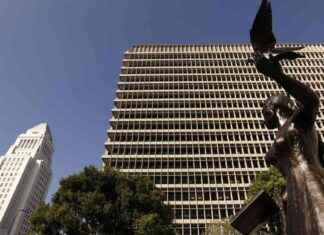Homebuyers in the UK may soon be facing higher mortgage costs following the recent Autumn Budget announcement. The Budget, which some experts believe did not do enough to stimulate the property market, has raised concerns about a potential increase in borrowing expenses on the horizon.
Jonathan Samuels, the CEO of Octane Capital, has warned that the 2% stamp duty hike for second homeowners and landlords is not the only factor affecting buyers. The spike in swap rates, which are used to determine mortgage pricing, after the budget announcement suggests that both new and existing homeowners could be looking at higher costs in the near future.
While the focus has been on the immediate impact of the Budget, Samuels points out that the real issue may lie in rising mortgage rates, which could affect buyers well before the relief thresholds expire in March 2025. The Autumn Statement disappointed many in the property sector as it did not provide substantial support for the market’s recovery amidst already high mortgage rates.
The increase in stamp duty for additional properties and the lack of relief extensions for existing and first-time buyers have left many in the property market feeling let down. The rise in bond yields following the Budget indicates concerns among bond investors about the government’s borrowing plans, which were more extensive than anticipated.
After the Budget, Octane Capital’s analysis showed a significant increase in swap rates, signaling a rise in mortgage costs. The one-year swap rate climbed to 4.543% and the five-year rate to 4.277%, reaching levels not seen since earlier in the year. Although the rates eased slightly, they surged again, indicating a potential sustained climb in borrowing costs.
The spike in swap rates, according to Samuels, could be a reaction to the unexpected borrowing announcements or the beginning of a longer-term trend, similar to what was seen after last year’s mini-budget. Landlords, who are already dealing with higher stamp duty costs, may face added pressure if mortgage rates continue to rise.
The combination of increased borrowing expenses and investment costs could have a negative impact on the private rental market, potentially leading to higher rents as landlords try to cover their rising expenses. Investors relying on mortgage-based financing may find the market less appealing due to the growing financial pressures.
In conclusion, the aftermath of the Autumn Budget has raised concerns about escalating mortgage rates and the potential impact on homebuyers and landlords in the UK. The property market may face challenges in the coming months as borrowing costs continue to rise, affecting both existing and new homeowners. It remains to be seen how the market will adapt to these changes and whether additional support will be provided to mitigate the effects of the Budget.







